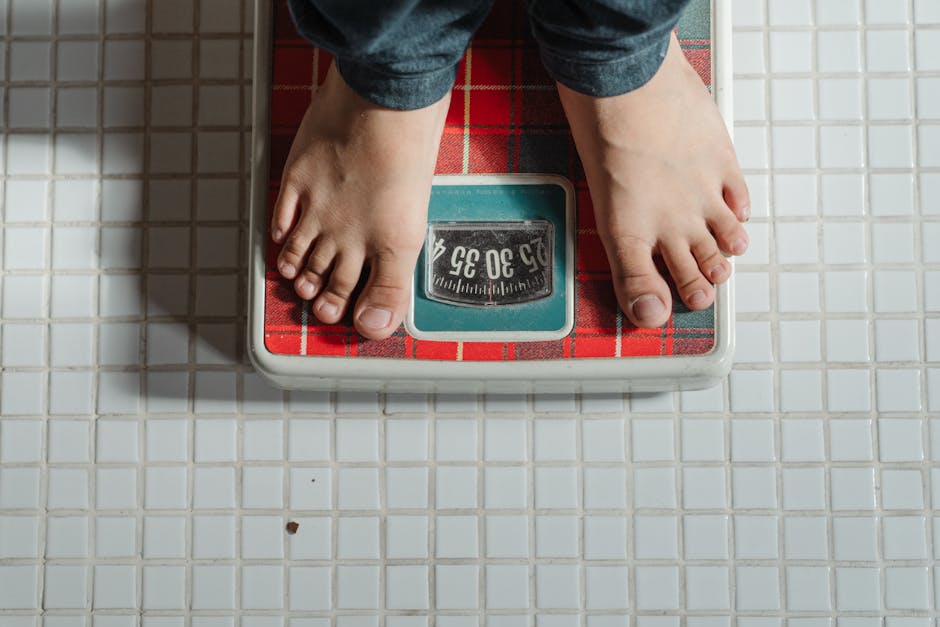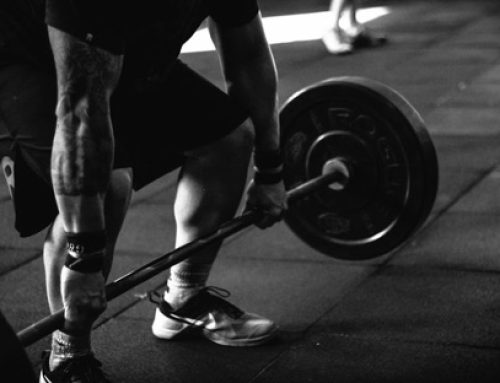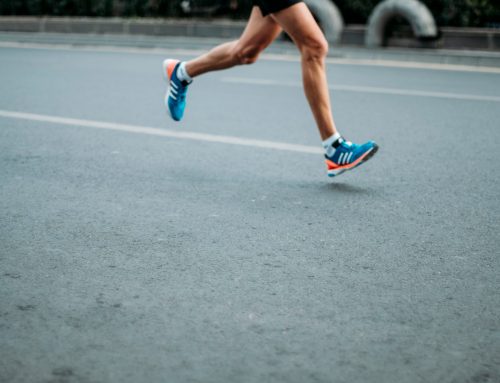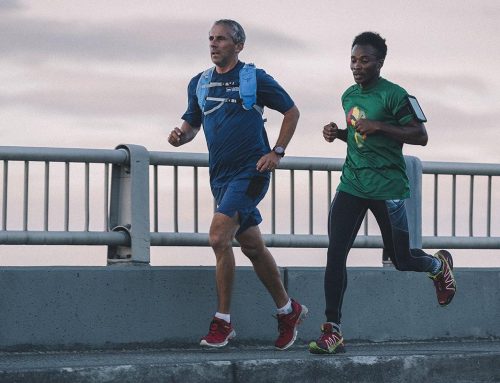Ah, genetic influences on fitness and weight loss. It’s like the elusive unicorn that everyone is chasing after but no one can seem to catch. It’s the age-old question of whether we are destined to be chunky monkeys or svelte gazelles based purely on the genes we inherited from our ancestors. Well, good news, bad news. The answer is, yes and no. Confused? Don’t worry, we’ll break it down for you, with a side of humor, of course. So sit back, relax, and get ready to dive into the fascinating world of genetics and weight loss.
Contents
- 1 Genetic Factors that Impact Fitness Levels and Weight Loss
- 2 Understanding the Significance of Genes in Determining Fitness and Body Mass
- 3 The Science behind Genetic Influences on Weight Loss and Exercise Capacity
- 4 Exploring the Complex Interplay between Genetics and Physical Fitness
- 5 How Genetics Affect Nutrient Metabolism to Influence Weight Loss and Fitness Level
- 6 The Conclusion: When in Doubt, Blame Your Genes
Genetic Factors that Impact Fitness Levels and Weight Loss
Let’s face it, some people seem to have all the genetic perks when it comes to fitness and weight loss while others feel like they were dealt a losing hand. Genetics can play a major role in determining our fitness levels and how easily we shed those unwanted pounds. Here are a few genetic factors that can impact fitness and weight loss:
- Metabolism: Some people are blessed with a high metabolism that allows them to burn through calories like a flamethrower. Others, however, struggle with a sluggish metabolism that stubbornly clings to every calorie they consume like a hoarder.
- Hormones: Hormones play a critical role in regulating our appetite, energy levels, and fat storage. Genetics can determine how efficiently our hormones function, which can make weight loss a breeze for some and a battle for others.
- Muscle fiber type: There are two types of muscle fibers: slow-twitch and fast-twitch. Slow-twitch fibers are ideal for endurance activities like long-distance running, while fast-twitch fibers are better suited for explosive activities like sprinting. Genetics can determine which type of muscle fibers you have more of, which can impact your fitness performance.
While genetics can impact our fitness and weight loss goals, it’s not an excuse to throw in the towel and give up. With the right approach, anyone can improve their fitness levels and shed those unwanted pounds. So, whether you’re blessed with a high metabolism or cursed with sluggish hormones, there’s always hope for reaching your fitness goals.

Understanding the Significance of Genes in Determining Fitness and Body Mass
The significance of genes in determining our fitness and body mass is no joke. And I’m not just saying that because I inherited a love for pizza from my uncle Tony. Our genetic makeup has a huge influence on how our bodies function and respond to different stimuli. Luckily, with a little bit of knowledge (and some self-control), we can help our genes work for us instead of against us.
One key genetic factor that determines our fitness is something called mitochondrial DNA. This powerhouse of a molecule is responsible for producing energy in our cells, and studies have shown that the more efficient your mitochondria are at burning fuel, the more physically fit you will be. So if you want to boost your stamina for those long runs, try incorporating some high-intensity interval training into your routine – your mitochondria will thank you!
Another important genetic player in the fitness game is something called FTO, or the “fat mass and obesity-associated” gene (not the catchiest name, I know). Some people have variations of this gene that make them more prone to storing fat and struggle to maintain a healthy body weight. But fear not! Just because you may have inherited the “FTO curse” doesn’t mean you’re doomed to a life of elastic waistbands. Focus on eating healthy, nutrient-dense foods and getting regular exercise to counteract FTO’s effects.
In short, our genes can certainly play a role in determining our fitness and body mass, but they’re not the be-all and end-all. With some smart lifestyle choices and a bit of luck (hey, I said this was supposed to be humorous), we can all work with our genetic makeup to become the best, healthiest versions of ourselves.
The Science behind Genetic Influences on Weight Loss and Exercise Capacity
Let’s dive into the fascinating topic of genetics and how it relates to weight loss and exercise capacity. We all know that friend who can eat a whole pizza and still look like a supermodel, while our own metabolism seems to have the speed of a snail on tranquilizers. Well, genetics might be the culprit!
Studies have shown that genes can influence our body weight and the way we respond to exercise. For example, a variant of the FABP2 gene is related to a higher risk of obesity, while another gene, called ACTN3, is linked to muscle performance during exercise. But don’t despair if your genes seem to be working against you. After all, you can’t change your DNA, but you can change your lifestyle habits.
So, should we blame our genes for not shedding those extra pounds or for feeling exhausted after a short run? Of course not! We should thank them for the unique traits they gave us and try to make the most out of them. It might take more effort for some of us to reach our fitness goals, but it’s not impossible. By focusing on a healthy diet, a consistent exercise routine, and a positive mindset, we can improve our physical abilities and overall well-being, regardless of our genetic makeup.
- Remember, genes are not destiny.
- Embrace your uniqueness and use it as a motivation to challenge yourself.
- Laugh at the fact that your genes might be the reason why you hate running or love carbs.
Science is still uncovering the mysteries of genetics and how they affect our lives. Who knows what secrets your DNA might hold? Maybe you have the gene for extreme endurance or the ability to burn fat effortlessly. The only way to find out is by taking action and exploring your own potential. So, what are you waiting for? Let’s make our genes proud!
Exploring the Complex Interplay between Genetics and Physical Fitness
It’s no secret that some people are just naturally better at physical activities than others. You know the ones – they breeze through running a mile without breaking a sweat, while you huff and puff after just a few steps. But what makes them genetically blessed in the fitness department? Let’s explore.
First up, we have the beloved genetics superstar – muscle fiber type. You see, we all have two main types of muscle fibers – slow-twitch and fast-twitch. Slow-twitch fibers are better for endurance activities like long-distance running, while fast-twitch fibers are great for explosive movements like jumping or sprinting. If you happen to have a higher proportion of fast-twitch fibers, congratulations – you’re more likely to excel at power-based sports like weightlifting or basketball.
Next, we come to everyone’s favorite trait – metabolism. We’ve all heard that one lucky friend say, “I can eat whatever I want and never gain weight!” while we glare at them enviously. But did you know that genetics play a huge role in determining how efficiently your body burns calories? People with a higher metabolic rate burn through calories faster, meaning they can indulge in late-night pizzas without worrying as much about the extra pounds. Lucky them.
Last but not least, we have VO2 max – the maximum amount of oxygen your body can use during exercise. This one’s a biggie – the higher your VO2 max, the better your endurance and overall fitness. Unfortunately, genetics can make a significant impact on your VO2 max. Some lucky individuals have been blessed with naturally high VO2 max levels, while others are stuck playing catch-up. Moral of the story? If you’re struggling to keep up with your marathon-running friends, it might just be genetics – blame your parents.
So, as much we may try to deny it, genetics play a big role in our physical fitness. But don’t worry – just because you weren’t blessed with the right genes doesn’t mean you can’t still reach your fitness goals. With some dedication, hard work, and maybe a few extra trips to the gym, you can prove those pesky genes wrong. Or you can keep blaming your parents – that’s always fun too.
How Genetics Affect Nutrient Metabolism to Influence Weight Loss and Fitness Level
Genetics play a significant role in determining how our bodies metabolize and absorb nutrients. Some of us may be blessed with genes that help us lose weight quickly and easily, while others may struggle to shed even a pound. But that doesn’t mean you have to give up on your fitness goals. By understanding how your genetics affect nutrient metabolism, you can make informed decisions about your diet and exercise routine.
Here are some ways genetics can influence your weight loss and fitness level:
– Metabolism: Your metabolism is controlled by a variety of genes that determine how efficiently your body uses and converts energy. If you have a high metabolism, you may burn calories faster and find it easier to lose weight. Conversely, if you have a slow metabolism, you may struggle to lose weight even if you eat a healthy diet and exercise regularly.
– Fat Storage: Genetics also play a role in where your body stores fat. Some people naturally store fat in their belly, while others store it in their hips and thighs. This can affect your overall body shape and your risk of developing certain health conditions. However, keep in mind that you can’t spot-reduce fat, meaning you can’t target specific areas for weight loss.
– Macronutrient Needs: Finally, your genetics can impact your dietary needs for macronutrients like protein, fats, and carbs. Some people may require higher amounts of protein to build muscle or lose weight, while others may need more healthy fats to maintain cholesterol levels. Knowing your individual macronutrient needs can help you create a more personalized diet plan that supports your fitness goals.
The Conclusion: When in Doubt, Blame Your Genes
Well, folks, we’ve reached the end of our journey through the murky waters of genetics and fitness. And what have we learned? That we’re all doomed to inherit our mom’s love handles, dad’s beer belly or grandma’s thunder thighs. But seriously, let’s not be too hard on our genetics; after all, they’ve been around for a few million years longer than Weight Watchers or Cross Fit. And even though some DNA sequences might make it harder for us to stay fit or lose weight, it’s definitely not impossible. So, the next time someone tells you that you look like you’ve put on a few pounds, feel free to roll your eyes and say: “Blame my dang genes!” And then go for a jog. Or grab a bacon burger. Who are we to argue with evolution, right?








Leave A Comment